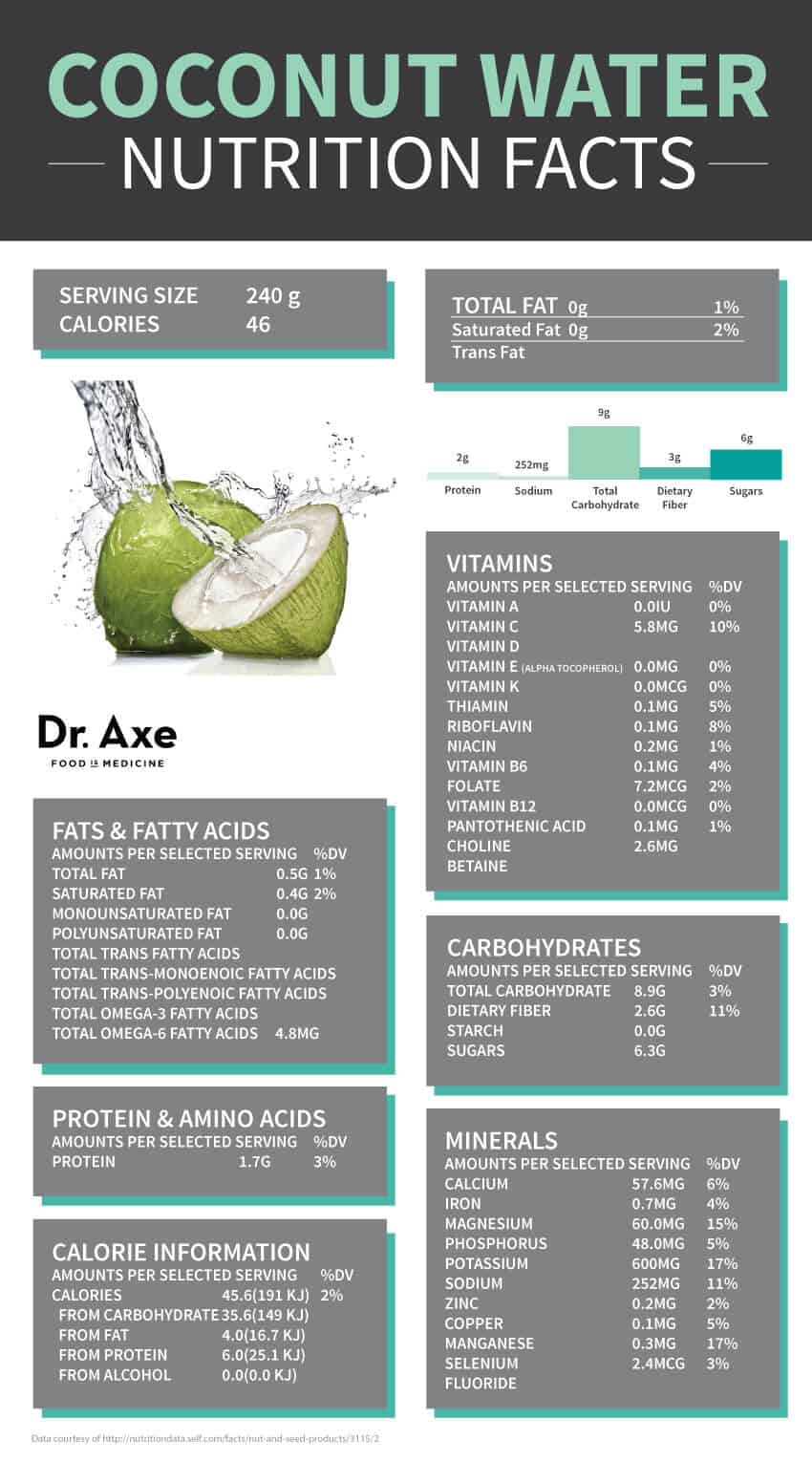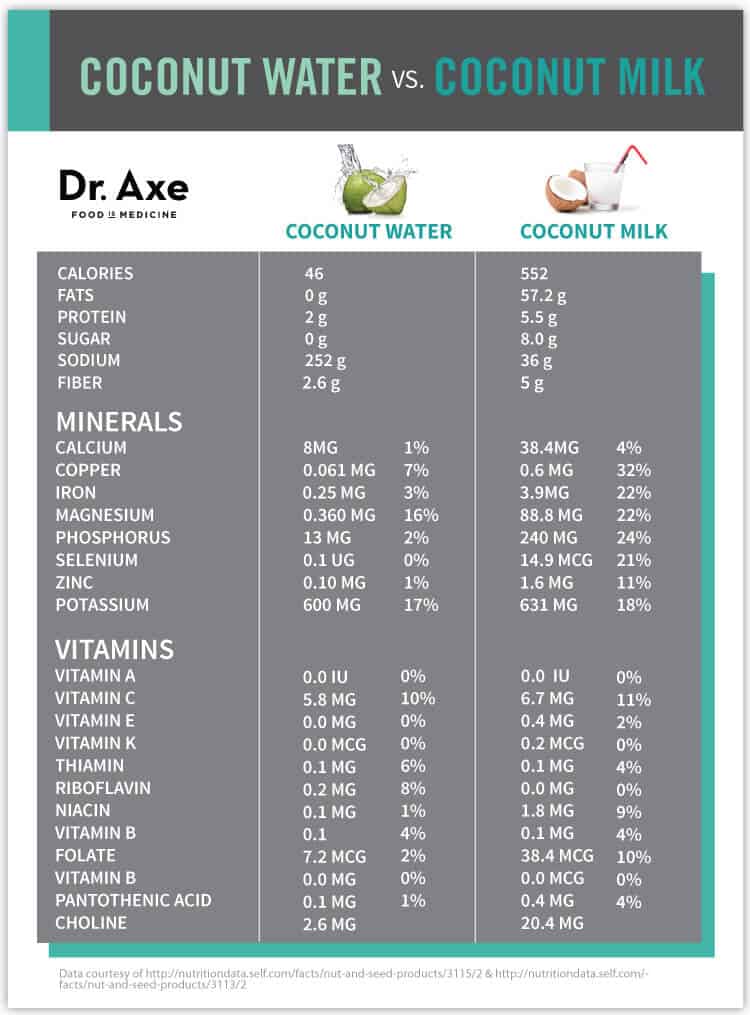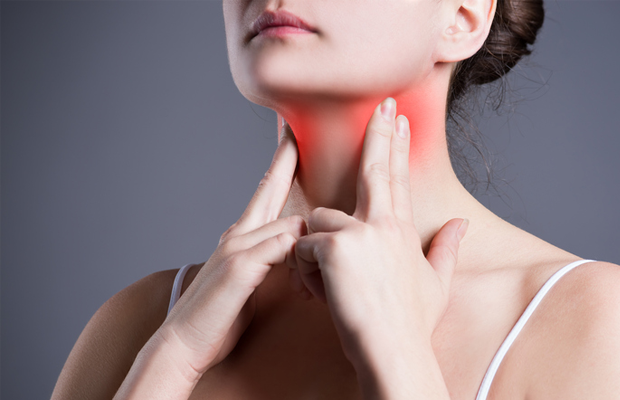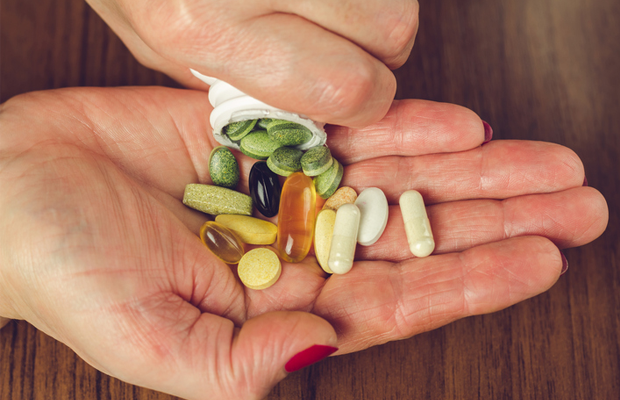Personal experience is always the best teacher. My first experience with coconut water happened during a crisis that lasted several months beginning in the ICU of a hospital and then several weeks in a rehab hospital. The patient was my dad and coconut water and granola bars were my main source of food. He suffered a TBI, traumatic brain injury, and was recovering. I had a TBI when I was 16, 50 years ago, and was still fighting a seizure disorder that I took medicine for but lack of sleep and stress still caused seizures. However, even though there were days that I got little to know sleep and was under high stress the entire time it was that diet of coconut water and granola bars that kept me seizure free during the entire crisis.
Coconut water is popping up everywhere in a variety of healthy beverages and you may be curious if it really lives up to the hype surrounding it. But, do the benefits stand up to its actual nutritional value? Is coconut water good for you? I read a recent article from Dr. Josh Axe that explains why coconut water should be a mainstay in your everyday diet.
What Is Coconut Water?
Coconut water is the clear liquid found inside a young, green coconut which is usually about the size of a basketball. Ideally, young coconuts are harvested at 5–7 months of age, to contain the most water.
As the coconut matures, the liquid is replaced with coconut “meat.” The greatest nutrient health benefits of coconut water comes from drinking the water of the young coconut, not the mature coconut milk, which is generally lower in nutrients.
The water from coconuts has been consumed for centuries in tropical countries and is believed to treat a variety of health-related ailments. In Sanskrit, coconuts are called “kalpa vriksha,” which means “tree which gives all that is necessary for living.”
In certain emergency situations, it has been used for IV hydration due to its high electrolyte content and the fact that it’s sterile if used directly from the inside of the coconut. People all over the world enjoy it for its multiple benefits and sweet taste.
Recently, coconut water’s health benefits continue to be touted, as many marketers call it “nature’s sports drink” and a “life enhancer.” But, are the claims that coconut water is good for you really true?
Coconut Water Nutrition Facts
The liquid inside the coconut contains approximately 46 calories per cup, 10 grams of natural sugar, with little protein and zero fat. It contains multiple vitamins, minerals and phytochemicals that are ideal for human health. (1)
The primary nutrient in coconut water is potassium. It contains approximately 600 milligrams (12 percent daily value), making it a high electrolyte beverage. Coconut water also contains a small amount of sodium, about 40 milligrams and up to 10 percent of your daily calcium and magnesium needs. (2)
Electrolytes are critical to maintain blood volume, heart health, as well as to prevent dehydration. Maintaining electrolyte levels can help reduce fatigue, stress and help maintain muscle relaxation.

With these nutrition benefits is coconut water good for you? The answer is yes! If you really like the flavor, it can be a low-calorie, low-sugar alternative to soda. It is pretty refreshing to consume on a hot day and to help re-hydrate.
Other health benefits of coconut water include:
- Lowered blood pressure
- Weight loss
- Increased athletic performance
- Boosted energy
- Lowered cholesterol
- Reduced cellulite
- Relax muscle tension
Coconut water is a safe, healthy beverage for most people. Those with kidney disease should limit consumption foods that are too high in potassium, including coconut water. Now let’s explore the research and science-backed benefits of coconut water.
Is Coconut Water Good for You? 5 Health Benefits of Coconut Water
1. Electrolyte Replacement: Coconut Water vs. Sports Drink
Because coconut water is high in potassium, and such a great electrolyte replacement, it has even been used for IV hydration in certain emergency situations. (4)
It is also lower in carbohydrates compared to other sports drinks. Coconut water is only about 4.5 percent carbohydrates whereas other sports drinks can contain 6–8 percent carbohydrate concentration. This is good for athletes trying to watch their sugar intake and hydrate after an event. For most casual exercisers, coconut water is a great low-sugar hydration choice for after a workout.
A 2002 study compared water, coconut water and standard sports beverages to determine which beverage was best for post-exercise hydration. The eight subjects exercised in the heat and then were rehydrated with either water, coconut water or a sports drink.
Researchers found that there was no difference in sodium levels, urine output or fluid balance between the three beverages, meaning all three beverages were equally hydrating. But, there was significantly less nausea or fullness with the coconut water allowing the participants to drink more of the beverage. (5)
Overall, coconut water can be an alternative to sports drinks, but it may depend on the type of sport and the intensity. Some long-distance endurance athletes may need more specialized products that contain more sodium and carbohydrates. But, for most casual exercisers, coconut water is a great option.
2. Lower Blood Pressure
A 2005 study found that when subjects were given coconut water for two weeks, their systolic blood pressure was 71 percent lower and their diastolic blood pressure was 29 percent lower than those who drank plain water.
The high potassium content of coconut water has led researchers to investigate the potential benefits for reducing cardiovascular disease risk. Potassium counteracts the effect of sodium in the body, helping lower blood pressure. (6, 7)
3. Lower Cholesterol and Triglycerides
A 2006 study found that rats given coconut water had a decreased chance of having a heart attack. It helped decrease their total cholesterol triglyceride levels, and LDL cholesterol, specifically the cholesterol found in the heart.
Additionally, the health benefits of coconut water helped the rats recover faster if they did have a heart attack. Researchers believe that the benefit may be related to the potassium, calcium and magnesium content in the water, all electrolytes that play a role in helping maintain heart health. (8, 9)

4. Cleansing / Detox
Our bodies have an amazing natural ability to cleanse and detox on their own, if provided the correct nutrients and hydration. Inadequate hydration leads to the build-up of toxins in our bodies because the liver and kidneys, the detoxifying organs, are unable to function properly without adequate water.
Dehydration resulting from water or electrolyte loss leads to fatigue, irritability, confusion and extreme thirst. These symptoms result from the inability for the kidney to adequately flush toxins out of the system. Adequate fluid intake, ideally 8–10 cups per day, can help prevent dehydration and maintain the body’s natural detoxification ability. Although water is great, during very hot weather or strenuous exercise, more than just plain water may be necessary.
Coconut water contains a similar electrolyte profile to human blood, making it an ideal beverage to replace fluids and help remove toxins from the body. The electrolyte potassium, specifically, can help counteract some of the negative effects of a high-sodium processed diet.
5. Reduce Stress and Muscle Tension
It’s almost as good as a massage! Some of the electrolytes found in coconut water, specifically calcium and magnesium, may help with stress and muscle tension. Many of us are missing these critical minerals in our diets, making stress management even more challenging. Other than maintaining strong teeth and bones, calcium helps with smooth muscle relaxation. Adequate calcium intakes may help keep our all our muscles relaxed, including our heart muscle, lowering the risk of heart attacks. (10)
Magnesium has been nicknamed the “relaxation” mineral. Its primary function is in the parasympathetic nervous system, the part of the nervous system that helps us relax. It also helps with the formation of serotonin, the “feel good hormone.” (11)
Magnesium and calcium work together to help maintain muscle relaxation. Coconut water contains both of these minerals, so drink up on a stressful day to help you stay calm and stress-free.
Coconut Water vs. Coconut Milk
Many people confuse coconut water with coconut milk. Higher in fat and calories, coconut milk is extracted from the flesh of the coconut and is thicker, sweeter and more dense. It also is packed with nutrition and healthy saturated fats, but it is also very high in calories. A cup of coconut milk is about 552 calories compared to a cup of coconut water that is only about 46 calories! Whew!
Coconut milk has many health benefits, as it’s a rich source of potassium, manganese, magnesium, folate, calcium and selenium.

One note too, while coconut milk is high in fat, it’s important to remember that the medium chain fatty acids of the saturated fat in coconut oil and coconut milk are very good for you! They can be used by your brain without going through your digestive tract and so they are easily accessed by your body.
Because of its great taste and texture, coconut milk is a great dairy substitute for baking and cooking as well.
The Best Coconut Water to Buy
If available, look for coconut water in a fresh, green coconut, instead of the packaged variety, it may be difficult to open, but is really fun to drink. It also contains no added sugar, preservatives and isn’t pasteurized. It is the healthiest and most delicious choice by far.
Fresh coconuts are perishable and you may find them in the refrigerated section of health stores. If they are opened, the coconut water should be kept cold and consumed within 3–5 days.
If you cannot find a fresh, green coconut, your second best choice is cold-pressured coconut water, which is only lightly processed via high pressure processing instead of heat. This exposes the water to high pressure to eliminate bacteria, but maintains a greater level of vitamins and minerals.
If coconut water does not need to be refrigerated, it usually means it has been pasteurized to maintain its freshness. During the pasteurization process, liquids are heated to a high temperature to kill any bacteria, but this also destroys many of the natural vitamins and minerals in the product.
Avoid coconut water that is from concentrate. Generally, if any fruit or vegetable is made into a concentrate, it loses nutrients in the process — therefore, it is always best to choose options that are not from concentrate.
In order to make it more “flavorful,” many companies are adding sweeteners or other flavors to coconuts. Many companies also use flavors to cover up the fact they are not using young coconuts in their coconut water, but instead are using mature coconuts that have a more bitter and acidic taste. (13)
Avoid coconut waters with added flavors or sugar. The primary ingredient should be 100 percent coconut water, there should not be any added fruit juices, natural or artificial ingredients, or anything that may indicate that the water was modified in any way.
Ways to Enjoy Coconut Water
There are different ways you can enjoy this beverage. Coconut water — also sometimes called coco water — pairs well with grape, as grape and coconut create a delicious mix. You can also add it to a smoothie.
If you looking for a great way to boost your digestive and immune systems, then eating and drinking probiotic foods is the way to do it. And if you have a dairy sensitivity, then coconut kefir water is a great option!
Kefir is traditionally a cultured dairy product that is one of the most probiotic-rich foods available. It has multiple health benefits due to its high probiotic content, for people with gastrointestinal issues as well as those who have been overprescribed antibiotics.
Traditionally, kefir has been made by adding kefir grains to dairy, such as milk. Kefir grains are not actual grains, but are small kernels that contain a specific balance of yeast and bacteria.
Although most people are generally able to tolerate kefir, even if they can’t tolerate dairy, some people may be sensitive to it or have a dairy allergy. Luckily, coconut water can also be made into kefir to help everyone reap the benefits from this amazing beverage. Here is a great recipe for coconut water that you can make at home!
Recipe: Super Hydrator Juice
If coconut water alone is too plain for you, try mixing it with other fruit juices — make sure you use 100% juice. Here is a recipe for my Super Hydrator Juice drink that contains coconut water as well as other fruit and vegetable juices for optimal hydration — 100% juice in all instances.
Ingredients:
- 4 ounces coconut water
- 4 celery stalks
- 1 whole cucumber
- 1 peeled lime
Directions:
Add all ingredients together into a juicer. Gently stir and drink immediately.
Coconut water has so many amazing health benefits, consider adding it to your daily routine as a beverage for ultimate hydration. It should not replace plain water, but it can be a great alternative to other beverages that is low in sugar and calories.
Be careful when buying commercial brands, as many can lack the nutrients found in the natural water. Many brands have a significant amount of added sugar or preservatives that can modify the health benefits of this amazing treat.
Coconut water is good for you. That’s why you should drink it — it has multiple health benefits and may be cardio-protective as well as help prevent cancer and other
By Jillian Levy, CHHC





 We also know how important bacteria are for maintaining a normal immune system from experiments with germ free laboratory mice born without any bacteria at all.
We also know how important bacteria are for maintaining a normal immune system from experiments with germ free laboratory mice born without any bacteria at all.













